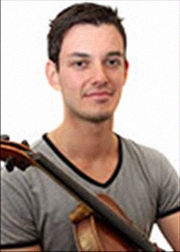Tutor HuntResources Violin Resources
The Importance Of Holistic Practice
Date : 11/05/2016
Author Information

Uploaded by : Cameron
Uploaded on : 11/05/2016
Subject : Violin
Given the extremely complex nature of music and thus music performance, it is easy to be seduced into an over analytical and micromanaging mindset. For players with a disposition to over analysis, one can lose sight of the big picture which presents difficulties when an upcoming performance looms. What follows is a brief chronology of some major components of effective practice.
One must approach practice methodically and with mental clarity. In the first instance, a substantial amount of practice must be done away from the instrument so that the technicalities of playing do not interfere with developing musical vision. I would suggest the first step when learning a new piece is listening to multiple recordings of the highest quality. This will present the learner with an array of interpretations from which she can develop her own taste. It is not enough to simply listen to the melodic line, one must also listen to the same recording a number of times focusing on different musical elements: for example the bass line which gives the foundation of the piece, the inner parts, the phrasing and the expressive timbres.
Once this fundamental stage of the learning process has been addressed it is then necessary to become acquainted with the instrument, at which point technical aspects of the piece are developed. It is essential to first understand musically what the intention is before the technique can be developed with any authority, as it is the music which dictates the technique and not vice versa. This clarity of musical intention is formed over exposure to various recordings, performances and your own creativity and intellect.
At this technical development stage it is important not to over practice. One can fall into the trap of mindless repetition, which in actual fact is only good at one thing, reinforcing mindless errors which arise from the mindless repetition. Maintaining a clear mind with a clear intention will serve the performer well when assessing whether the musical goal has been achieved through their technique.
Ultimately the goal is always to produce exciting, creative and engaging performances. One cannot expect this of the performance if the majority of practice time has been spent in the technical phase. It is important to run the performance during the practice phase multiple times and ideally in various settings. Of course, if a recurring technical error presents itself it is important to deal with this, but only after the performance has been completed. Recording devices are of great use so that the performer can pinpoint exactly what needs improving to justify returning to the technical phase of practice.
In my experience, I believe that practice routines need to include more listening to recordings and performances with and without the score, as well as performance runs. Working out the technicalities of performance is of course of the utmost importance, but this relies entirely on having a clear musical vision in the first instance and not getting trapped in this phasy unnecessarily.
This resource was uploaded by: Cameron
